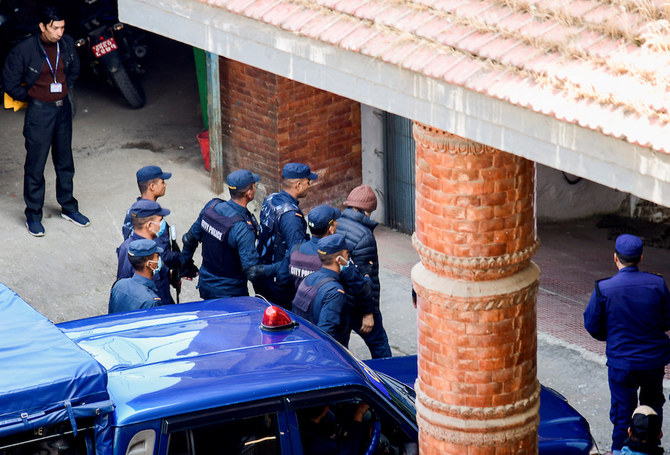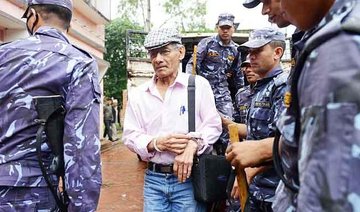KATMANDU : Charles Sobhraj, a convicted killer who police say is responsible for a string of murders in the 1970s and 1980s, was released from a Nepal prison on Friday after nearly two decades behind bars.
Sobhraj, 78, a French national, earlier arrived at the Katmandu airport for a regular flight – which has taken off for Doha en route to Paris – after clearing immigration.
Nepal has barred Sobhraj from entering the country for 10 years, Pradashanie Kumari, the acting director general of the immigration department, said.
On Wednesday, Nepal’s Supreme Court on Wednesday ordered his release from prison, citing his advanced age.
Suspected of killing more than 20 Western backpackers on the “hippie trail” through Asia, Sobhraj had been held in a high-security prison in Katmandu since 2003, when he was arrested on charges of murdering US tourist Connie Jo Bronzich in 1975.
He was dubbed the “bikini killer” in Thailand, and “the serpent,” for his evasion of police and use of disguises, and he has been the subject of several dramatizations, including a Netflix and BBC joint production released last year.
While in prison, Sobhraj married Nihita Biswas, a Nepali woman 44 years his junior, in 2008.
“I’m happy and have great respect for our judiciary and Supreme court,” Sobhraj’s mother-in-law Sakuntala Thapa said partner ANI after news of his release was announced.
Sobhraj denied killing the American woman and his lawyers said the charge against him was based on assumption.
Several years later Sobhraj was also found guilty of killing Bronzich’s Canadian friend, Laurent Carriere.
But he was suspected of many more murders, including in Thailand, where police say he allegedly drugged and killed six women in the 1970s, some of whom turned up dead on a beach near the resort of Pattaya.
He was jailed in India for poisoning a group of French tourists in the capital, New Delhi, in 1976, before he could stand trial on the charges against him in Thailand.
Sobhraj escaped from India’s Tihar jail in 1986 after drugging prison guards with cookies and cakes laced with sleeping pills.
Police arrested Sobhraj days later at a restaurant in the Indian beach holiday state of Goa.
“I walked up to their table and said ‘you are Charles’,” Madhukar Zende, the police officer who caught him in Goa, told The Indian Express newspaper in an interview published on Friday.
A statue of Sobhraj stands at the restaurant in Goa to this day. He was jailed in India until 1997 when he returned to France.
Born to a Vietnamese mother and Indian father, he was described by his associates as a con artist, a seducer, a robber and a murderer.
His true number of victims, spanning decades and several countries, is unknown.















